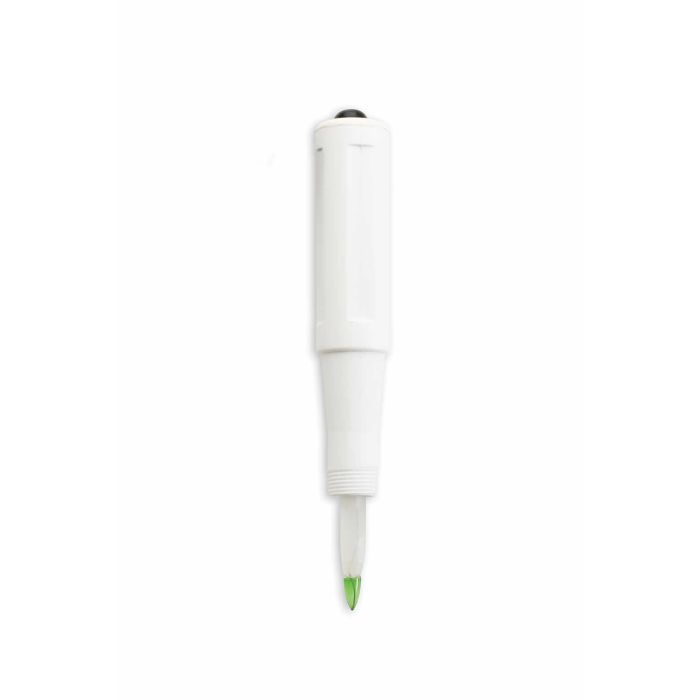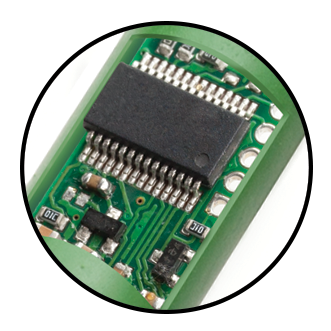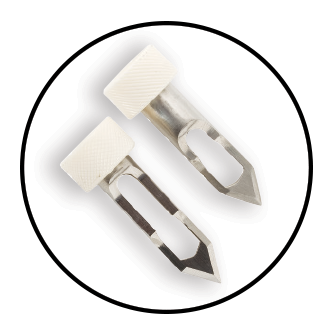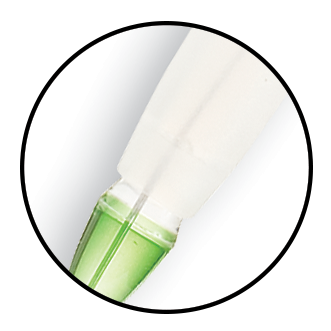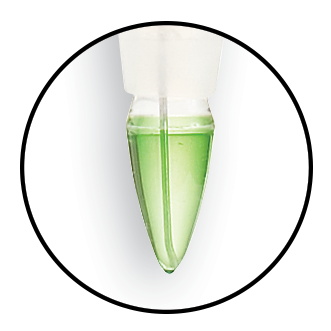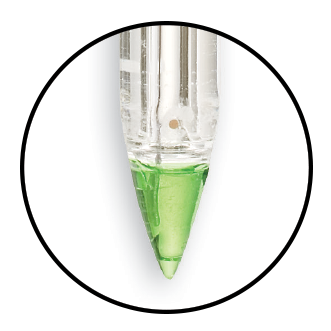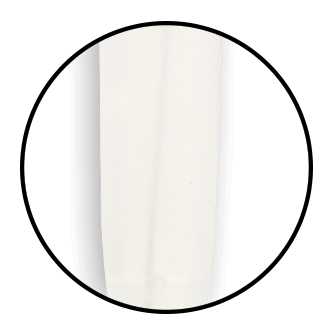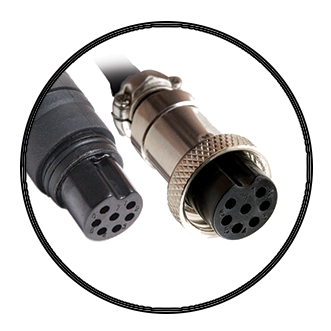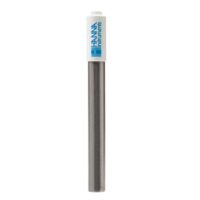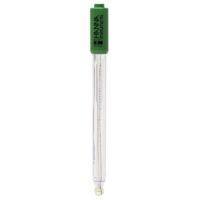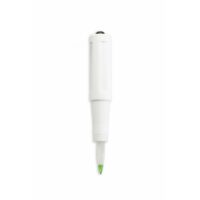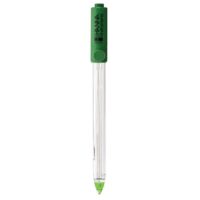Description
Hanna Instruments offers a wide variety of pH electrodes that are designed for many different applications. The type of glass used for sensing pH, bulb shape, body material, type of junction, type of reference and electrolyte used are just some of the design considerations.
The FC231D uses low temperature (LT) glass, conical bulb, food grade PVDF body, and open junction with viscolene gel electrolyte.
Low Temperature Glass Formulation
The glass tip uses a special LT glass formulation with a lower resistance of approximately 50 megaohms compared to general purpose (GP) with a resistance of about 100 megaohms. This is beneficial since many food products are stored at low temperatures. As the temperature of the glass decreases in the sample, the resistance of the LT glass will increase approaching that of GP glass at ambient temperatures. If using GP glass, the resistance would increase above the optimum resistance for the high impedance input of a pH meter.The FC231D is suitable to use with samples that measure from 0 to 50℃.
Conical Glass Tip
The conical shaped tip design allows for penetration into solids, semi solids, and emulsions for the direct measurement of pH in food products.
Stainless Steel Blade
An optional stainless steel blade is attached to the probe for easy meat penetration, even in frozen samples. Slicing into the meat will allow for the pH glass and reference junction to be in contact with the sample, allowing for a direct pH measurement without extensive sample preparation. The FC098 (20 mm; 0.75″) and the FC099 (35mm; 1.38″) are a set of two stainless steel penetration blades to be used with the FC231D.
PVDF Body
Polyvinylidene fluoride (PVDF) is a food grade plastic that is resistant to most chemicals and solvents, including sodium hypochlorite. It has high abrasion resistance, mechanical strength and resistance to ultraviolet and nuclear radiation. PVDF is also resistant to fungal growth.
Open Junction Reference
Suspended solids and proteins found in food products will clog a conventional ceramic reference junction. This clogging will impede the measurement circuit between the indicating electrode and the internal reference resulting in slower response time, erratic readings, and frequent electrode replacement. The open junction design consists of a solid gel interface (viscolene) between the sample and internal Ag/AgCl reference. This interface not only prevents silver from entering the sample, but also makes it impermeable to clogging, resulting in a fast response and stable readings.
DIN Connector
The FC231D Smart pH electrode has a DIN connector that can only be used with the HI98140, HI98150, HI98230, and HI98240 portable meters.
Built-In Microchip
The built-in microchip stores sensor type, serial number and calibration information including date, time, offset, slope, probe condition and buffers used. This information is automatically retrieved by edge® once the electrode is plugged in. The ability to transfer information allows for hot swapping of probes without having to recalibrate. All pH measurements are performed within the electrode and transferred digitally to the meter. This overcomes any noise issues associated with the traditional high impedance analog measuring system. Electrical noise can be generated from a built in temperature sensor and while working in a humid environment.

